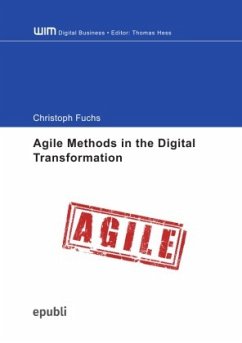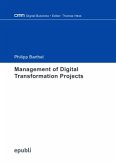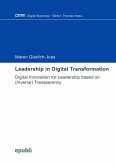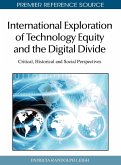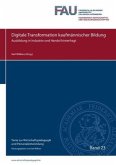With the continuous emergence of new digital technologies and the accompanying changes with regard to, amongst others, customer demands and market dynamics, established organizations are forced to rethink their way of conducting business. One option to address the various challenges that such an organizational digital transformation entails is represented in the efforts of firms to become agile. As a result, agile methods have drawn a widespread interest across industries and are applied in novel organizational areas besides software development such as human resources.
However, the process of implementing, adapting, using, and potentially disseminating agile methods within organizations is not trivial. Therefore, this dissertation explores the agile transformation process by means of three qualitative-empirical studies that examine individual parts of the overall organizational change process.
From a theoretical view, this dissertation provides a discussion on the role and zeitgeist of agile methods in the context of the organizational digital transformation. The book merges the empirical findings of the three empirical studies to offer an initial understanding of the process of an agile transformation. Practitioners, especially those in charge of an agile transformation, find insights with regard to the processual flow of an agile transformation as well as guidance on how to manage the change process and address the occurring challenges.
However, the process of implementing, adapting, using, and potentially disseminating agile methods within organizations is not trivial. Therefore, this dissertation explores the agile transformation process by means of three qualitative-empirical studies that examine individual parts of the overall organizational change process.
From a theoretical view, this dissertation provides a discussion on the role and zeitgeist of agile methods in the context of the organizational digital transformation. The book merges the empirical findings of the three empirical studies to offer an initial understanding of the process of an agile transformation. Practitioners, especially those in charge of an agile transformation, find insights with regard to the processual flow of an agile transformation as well as guidance on how to manage the change process and address the occurring challenges.

